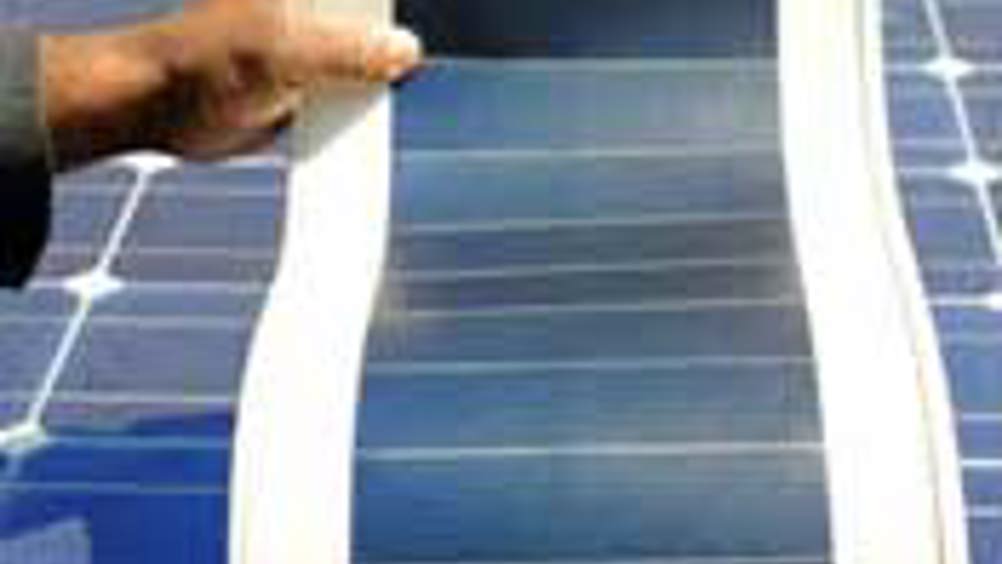Solar grant
Researchers at DuPont are developing an ultra-thin protective film that prevents moisture from degrading the performance of thin-film photovoltaic modules.

Researchers at DuPont are developing an ultra-thin protective film that prevents moisture from degrading the performance of thin-film photovoltaic (PV) modules as the result of a three-year $9m (£5.5m) research programme.
DuPont will provide $6m of the research money and the US Department of Energy (DoE) will contribute $3m from the American Recovery and Reinvestment Act.
Thin-film PV modules are projected to be the fastest-growing segment of the solar module industry because of their potential to reduce the cost of producing solar-derived energy. PV panels can be made with flexible plastic instead of glass and can be bent and wrapped, offering greater versatility and easier integration into the roofing, windows or siding of a commercial or residential building.
Ultimately, the DoE-funded programme will help enable the commercial production of flexible PV modules that are durable and lightweight and sport a high efficiency. The initial focus of the programme is on copper indium gallium selenide (CIGS)-type thin-film PV modules.
Register now to continue reading
Thanks for visiting The Engineer. You’ve now reached your monthly limit of news stories. Register for free to unlock unlimited access to all of our news coverage, as well as premium content including opinion, in-depth features and special reports.
Benefits of registering
-
In-depth insights and coverage of key emerging trends
-
Unrestricted access to special reports throughout the year
-
Daily technology news delivered straight to your inbox










BEAS funding available to help businesses cut energy costs
And not a moment too soon, if the following exchange broadcast last Friday 13th June, on the Radio 4 ´Rare Earth´ program (link below, ~ 17 minutes...